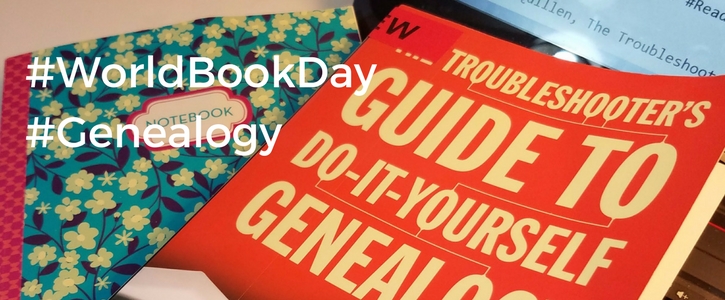I had a wonderful surprise when I visited my local library and checked out the non-fiction new releases. There were several new genealogy books.
W. Daniel Quillen’s Troubleshooter’s Guide To Do-It-Yourself Genealogy (1) was released late summer of 2016 as a 4th edition. Quillen wrote this book for intermediate level genealogists and focusedf other books beginner-level information or specialized areas.
The different chapters offer close looks at collection types with brief overviews and quick actionable tips for how to use online and onsite collections. For researcher’s who understand the basics, the tips provide next steps. More experienced researchers can review what they’ve already found and consider where to look further.
General themes that are woven through the chapters and demonstrated by the author’s own research stories, include:
* Extract information exactly, even names with different spellings
* Move from indexes and summaries to the original records to verify accuracy and identify additional information
* Use the hints to pursue additional leads
* Check out the local libraries near you and near where you are researching
* List items of “genealogical value,” and develop further research items
Chapter 7 on Land Records offers a great example of the analysis of a land deed, a list of items of genealogical value, and the research action steps that were developed. (2)
The book doesn’t have to be read cover to cover, but can be consulted when developing research plans or encountering a specific research challenge. Quillen also curated additional books and websites that supplement his advice related to the different collection types.
#WorldBookDay #ThursdayThoughts #ReadingMakesMe #Genealogy
—
Sources
(1) W. Daniel Quillen, The Troubleshooter’s Guide To Do-It-Yourself Genealogy, 4th Edition (New York: Cold Spring Press).
(2) Ibid., 116-119.
